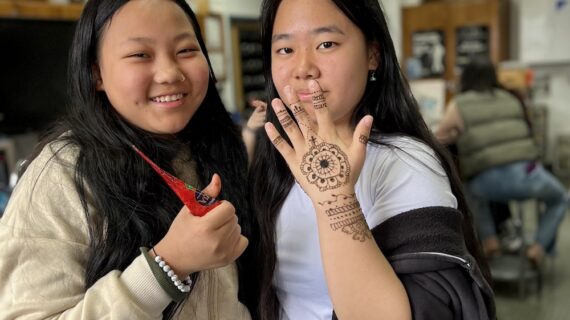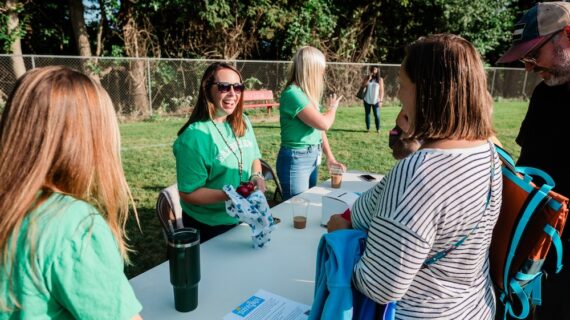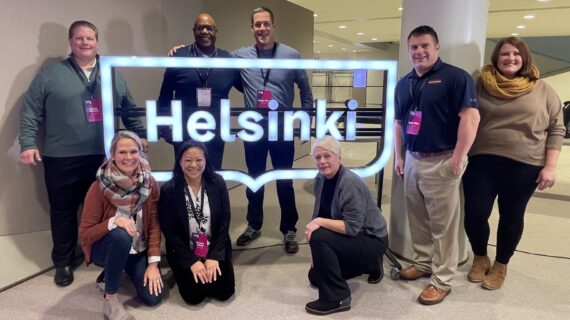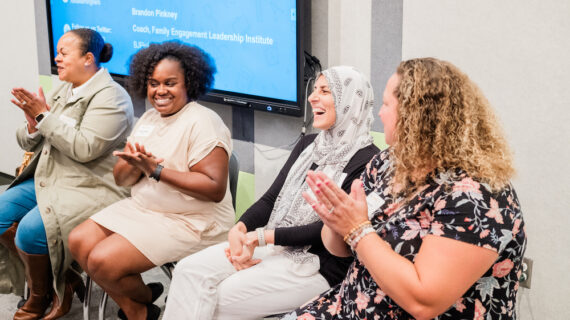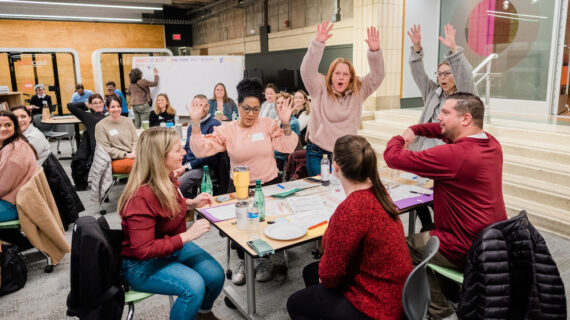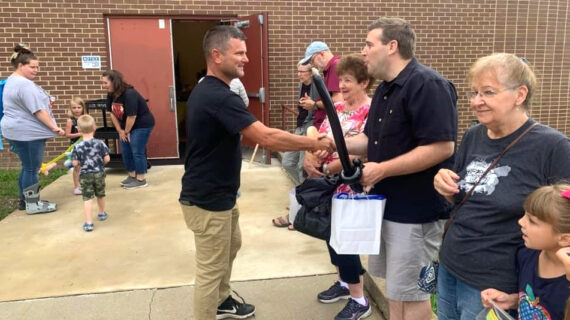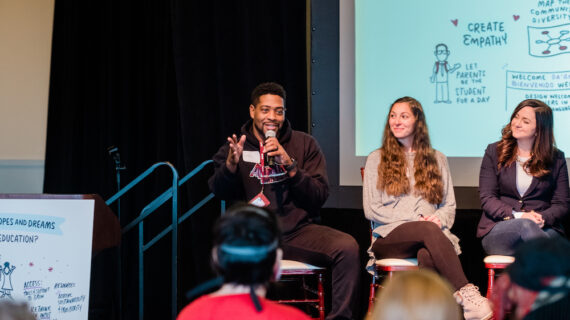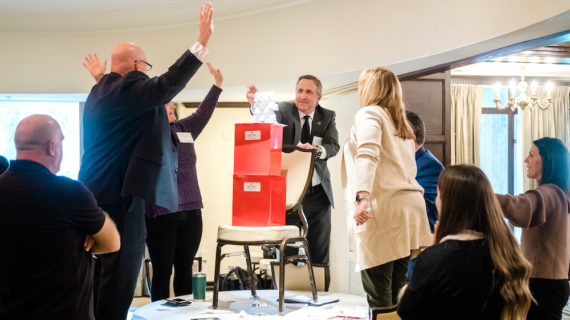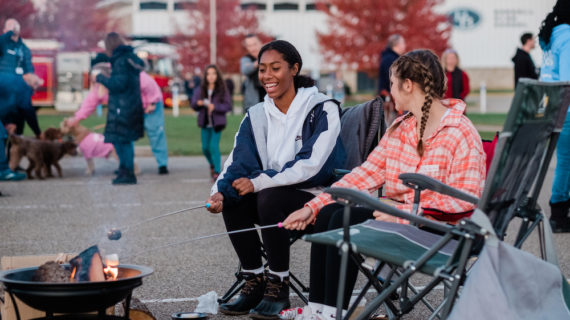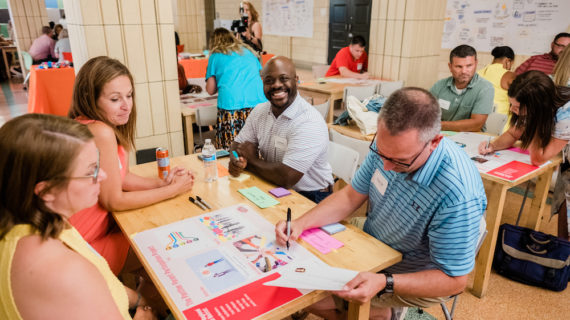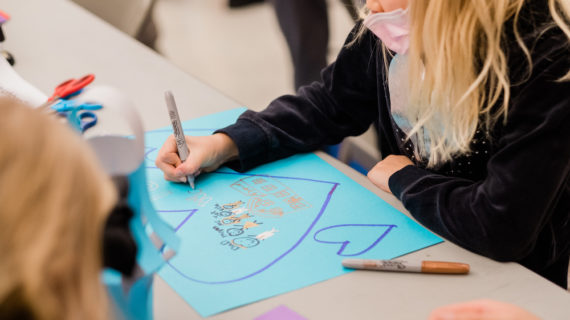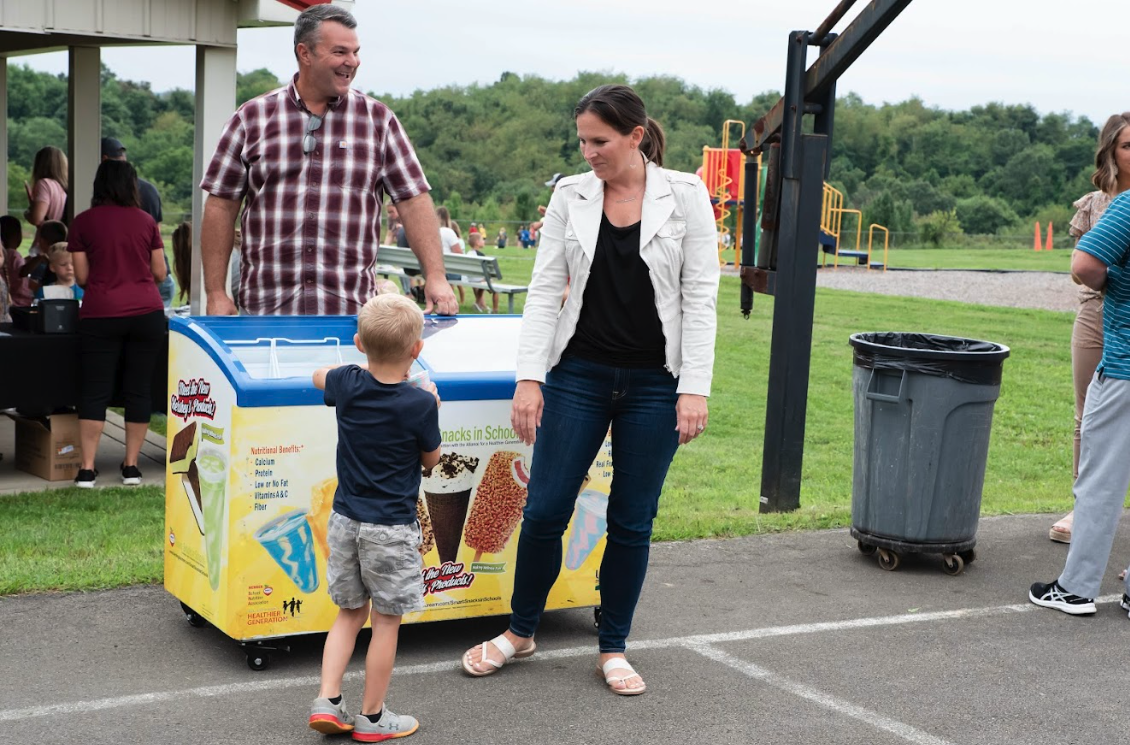
Parents as Allies: At Bentworth, the schools are finding ways to reach families at every grade level
In the summer of 2022, a group of parents arrived at Bentworth Elementary School holding the hands of their tiny offspring. It was kindergarten orientation day.
The specter of the COVID-19 pandemic still hung in the air. Parents worried about health and safety, along with the normal stresses of sending their kids to school for the first time. After nearly two years of routinely avoiding strangers, the thought of handing over a young child to a group of them was a steep hill to climb.
Bentworth Superintendent Scott Martin had been wanting the schools to build closer connections with families for years. Recently, his district had begun participation in the Parents as Allies (PAA) project, which uses design thinking to help schools and families really engage with one another.
PAA offered accountability and a bit of funding, so Martin dove in. He had gathered an enthusiastic team that included teachers and also parents like Lauren Kasula, who was eager to get to know administrators, teachers and other parents better than she had before.
The team’s first project? Connecting with new kindergarten parents.
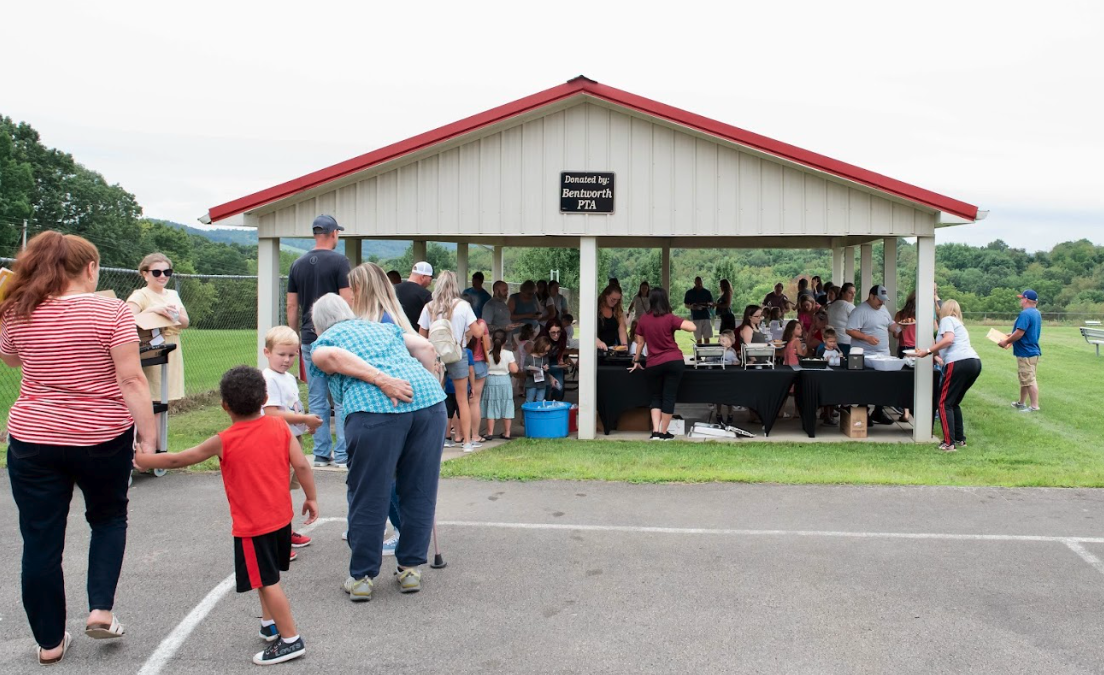
WHAT DID THEY TRY?
On that August afternoon, kindergarten orientation ended with Martin grilling hot dogs and families getting to know teachers as they loaded up on pickles, onions, ketchup and mustard. Nearly 70 parents and grandparents attended; some walked several miles to be there.
They let families know they saw them as people rather than names on a page.
Kids were busy playing outside and realizing that school could be a really fun place. And families walked away with information not just about safety measures at school but also about things like local sports sign-ups and scouting, and how to connect with the PTO.
A year later, the Hot Diggity Dog celebration took place again. Participation more than doubled: 180 parents and grandparents came the second year. It has become an annual tradition, and that inspired the PAA team at Bentworth to try something more.
The team turned their sights to helping and connecting with the families with kids transitioning into middle school.
“I had a daughter going into middle school and two other parents in the group had children going into middle school, and I had a lot of questions,” Kasula says. “Like, what is going to happen? What do they have in place? I even know the principal and I was still like, ‘I want to talk to him.’”
Conversations about that snowballed, she says, and the question was “What can we do with middle school?”
They considered staging a “community day” with a flea market, a bouncy house and food trucks, to show parents that Bentworth school district is a part of the community, not a separate entity. Everyone would be invited, not just parents, but also grandparents, alumni, community members. But that seemed a bit too much to attempt and also too broad.
Then they workshopped the idea of creating a parent support group that would connect parents who’d raised middle schoolers with newbie parents just beginning that journey. But that seemed a bit too specific and not necessarily something all parents would want to access.
They settled on an evening event where incoming middle school parents could dine on “walking tacos” while getting to know teachers and learning about the transition to middle school.
Parents went through the lunch line like a student — getting their food, their drink, their silverware and then sitting down with a mix of people they already knew and those who could become new friends.
A local business had donated a bicycle that was raffled off along with gift cards to restaurants and the supermarket. One key: the fifth grade teachers had volunteered to be there, so they could introduce the parents they knew to the folks who would be teaching their kids the following year.
Martin could feel the connections growing by the time he left the middle school building that night. Even before he got home, he says, people were messaging with a question: How can we do this at the high school level, too?
WHAT WOULD THEY TELL OTHER SCHOOLS?
- Maintain accountability. Schools know this kind of work is important. But school administrators are busy with so much else, that it’s easy for family-school engagement to be something they talk about tackling but don’t. The secret sauce at Bentworth was knowing that the whole PAA team – the school staff and the parents – had committed to trying new things and doing the work. They kept each other accountable. “We all need that push,” Martin says. “It’s good to push each other.”
- Don’t jump into creating events or making plans until you’ve really thought about what people need. Bentworth’s PAA group sent surveys to parents to ask them how they felt and what they needed, so that they weren’t working solely from their own assumptions.
- Work together to determine what connecting actually looks like. Teachers may be hesitant at first to connect too closely with families. So help them meet parents where they are – literally and figuratively.

